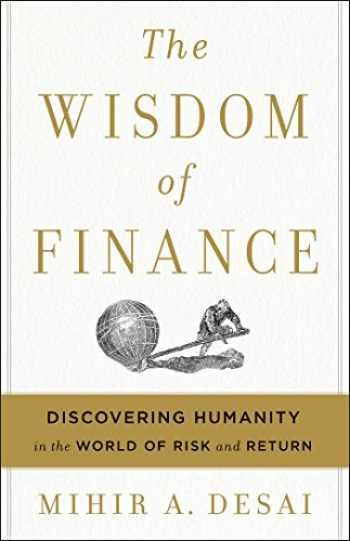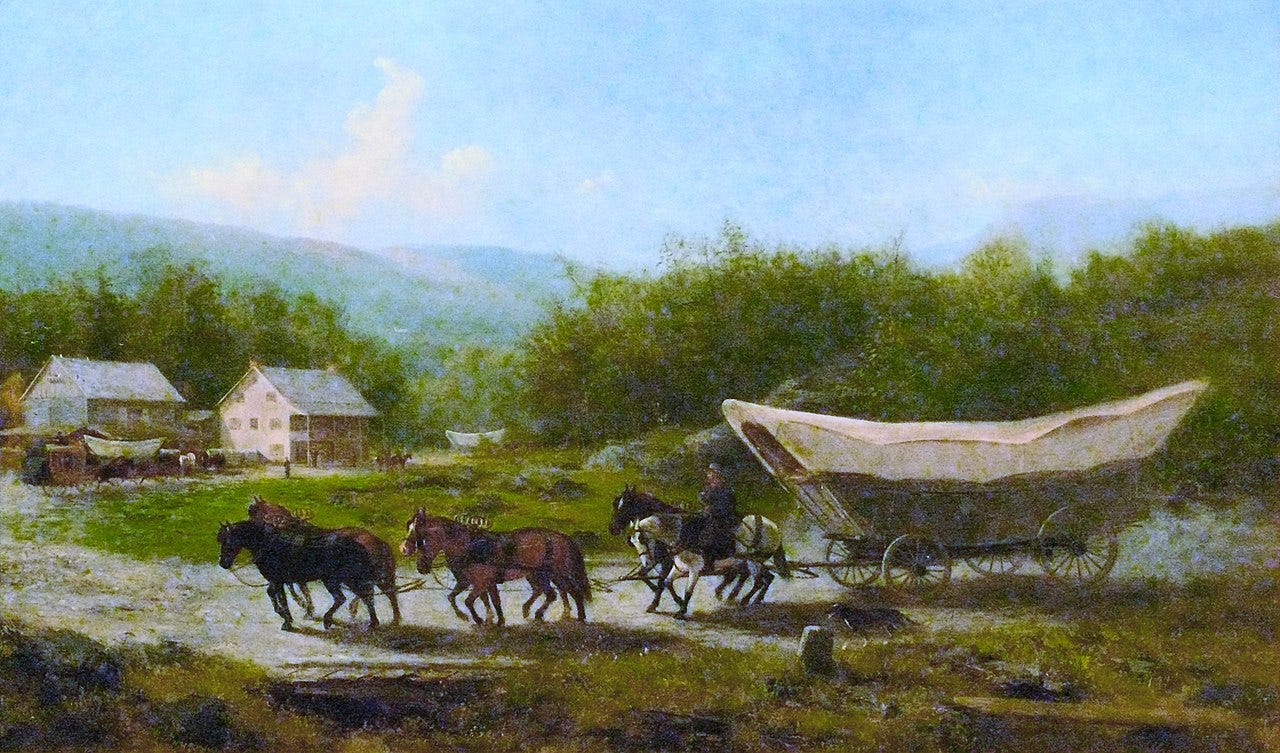Hello, my friends,
Now that I’ve brushed off the camp dust, I can move on to other trivial and important topics, but first, a little ramble: Last I checked, there were 37 of us in this digital Conestoga wagon so if we all came to a party, it couldn’t take place here in my little closet office. That’s okay, I can always rent a room for us at the nearest Denny’s. Speaking of fun, I have some thanks to give: In a previous issue (#4), I asked for personal finance recommendations and Nuria and Dan emailed me some good ones. Thanks, Nuria and Dan! And last week, after I found out how to enable comments, Pierre left an insightful first one. Thanks, Pierre! And thank all 37 of you for reading HMF. It’s a weekly pleasure to share a few of my interior monologues with you.
Did He Say Insurance?
I recently finished reading a short book of essays called The Wisdom of Finance by Mihir A. Desai and it occurred to me that as often as people complain about how terrible it is that they don’t teach you about some subject or other in school, that topic is never insurance. And you know what? It should be! If there’s one thing that screams adulting, it’s insurance. I don’t know about you, but I knew nothing about insurance when I oozed into the “real world” and have only, by necessity, picked up crumbs of knowledge over the years. And yet, insurance is all around us: Car, medical, home or renters, life, even that dark comedy called accidental death and dismemberment (AD&D). Years ago, my brother went to a boxing gym with an actor who had his face insured. I’ll bet his insurer yearned for him to take up Backgammon instead.
Insurance is simple and complicated in equal measure; once you master the basic vocabulary and understand the most common coverage options for the types of insurance relevant to you, you’re pretty much set. So it seems. Yet as soon as you think deeply about the concept of insurance, how easy it is to get carried away by more elusive topics like big data, actuarial science, risk, and randomness, as Desai writes:
Once you embrace randomness, you are left with the task of making sense of the world and seeking out the patterns that can guide your behavior. That leads us to probabilities as the only way to really understand the world — nothing is entirely certain and we should approach the world probabilistically. If we want to understand how probable things are and how the world works, the only way to figure out these probabilities is through experience, just as with an insurance company. The more experience an insurance company has with a population, the better their understanding of probabilities and the more successful their business. That’s why, in effect, we’re all insurance companies — experience is the critical method for understanding how to thrive. (31)
So yeah, I’m not rushing to change the name of this newsletter to “Hello, My Insurance Companies”, but if it happens, it’s not because of my friends the aliens.
Back on track, there are a lot of fascinating jumping-off points in The Wisdom of Finance. In it, Desai (who is a professor at Harvard Business School and Harvard Law School), joins finance concepts like insurance, options, value, the principle-agent problem, leverage, and bankruptcy with the humanities, notably history and literature. It’s an elegant book that manages to enliven otherwise dry topics by adding context that people like me, who don’t typically center finance as a critical lens, can appreciate. It also makes me want to delve deeper into finance concepts, which is perhaps Desai’s not-so-secret wish since he includes further reading at the end.
I hope you don’t mind, but I’ll be sharing more ideas from this book in future issues.

Crouton People
It was lunchtime on Wednesday. As I was putting croutons on my salad, I had a fleeting thought which I grabbed by the tail and pulled back. Now I’m going to tell it to you to see what you think. MaybeProbably I’m crazy, but is it possible to discern something about a person’s disposition based on whether they put croutons on salads? I rarely use croutons, but some people can’t eat salad without them. Is this phenomenon meaningful beyond the desire for carbs amid greens? Some say that everything is political, but how about croutons? In a post-apocalyptic world, will our anarchic society be divided between the Just-Greens and the Crouton People? Which side would you be on? Maybe I’ll ask ChatGPT to write a piece of flash fiction about it. Life is weird.
How I Lost a Mentor
Many years ago, I was paired up with a mentor in a professional mentoring program. She was accomplished, smart, and interesting — just generally impressive. We emailed back and forth about all sorts of library stuff for a few months and then our emails fizzled out. For a while I thought it was because I had caused offense because when she brought up treadmill workstations I, being a glib young punk, responded with something to the effect that the person who thought that up must have been high. But I’m pretty sure that wasn’t it because not long after that we ran into each other at an event, hugged warmly, and had a short talk, though we haven’t been in touch since.
Admittedly, the title of this post is clickbait. I didn’t really lose my mentor, she probably just got busy with a demanding job and didn’t have time to respond to my meandering emails. One month turned to two, then three, and eventually since I didn’t follow up, it was easier for her to just archive the email. I’m speculating, of course. In hindsight, despite our affinity, the relationship felt somewhat forced as formal mentoring programs tend to be.
Over the years, I’ve had much more successful experiences with informal mentoring from supervisors and colleagues, mostly without their knowledge. For instance, former UCLA Librarian, Lawrence Clark Powell, who wrote eloquently and often about yea-saying librarianship mentored me across time with his books… When I became a librarian in 2010, observing my first supervisor John interact in such a natural and friendly way with our various patrons certainly set me on the right path. Of course, then there’s Hannah Kramer. I wrote about Hannah, my Senior Librarian at the Will & Ariel Durant Library where I grew up and started my library journey, in 2017. Hannah deliberately ushered me into librarianship, letting me go beyond my entry-level duties in so many fruitful ways. She said I’d be the City Librarian one day.
When someone you respect sees you that way, it can shape the course of a life. It did mine. And by a natural law where kindness should always be attributed to its true source, I insist that Hannah’s mentorship makes her partially responsible for each time I’ve helped a patron in the past thirteen and a half years — when they thanked me, they also thanked her.





Here is ChatGPT's 100 word story, for your amusement. Note that there was a significant pause before "I would choose..." because of course this is bordering on asking the AI for an opinion...
In the post-apocalyptic world, the remnants of humanity struggled to rebuild society from the ashes of the old world. The Just-Greens emerged as a group that sought to create a new world in harmony with nature, and they fiercely protected the environment. On the other hand, the Crouton People were obsessed with technology and saw themselves as the future of humanity, willing to sacrifice the natural world for their own advancement. As tensions rose between the two groups, it became clear that a final showdown was inevitable. As for me, I would choose to stand with the Just-Greens, for I believed that the world would be a better place if we lived in balance with nature, rather than seeking to dominate it.
Croutons and routines